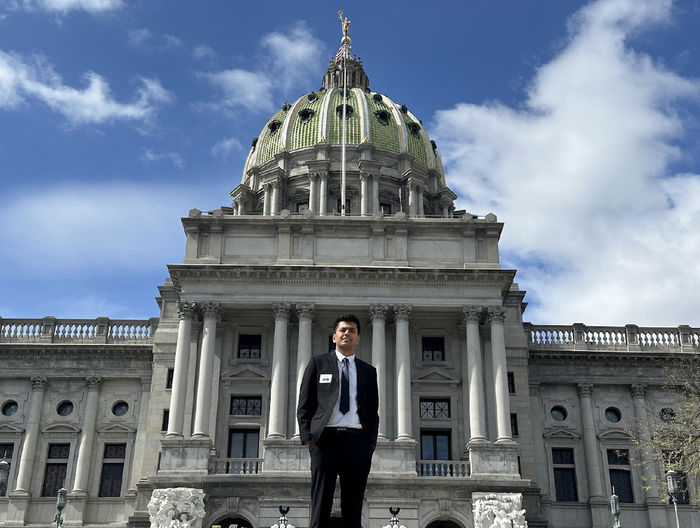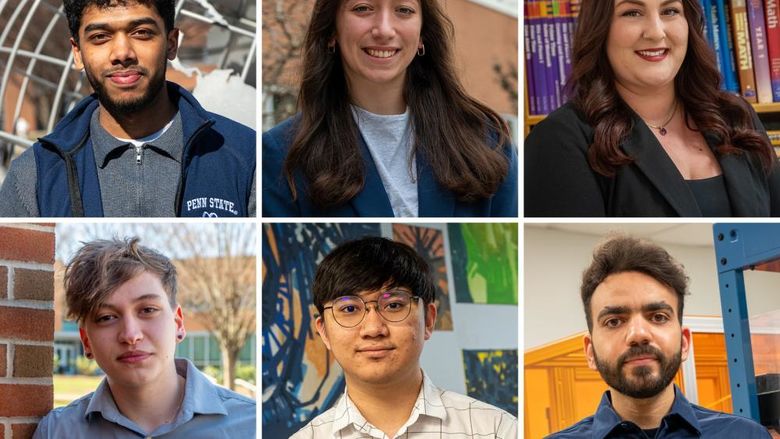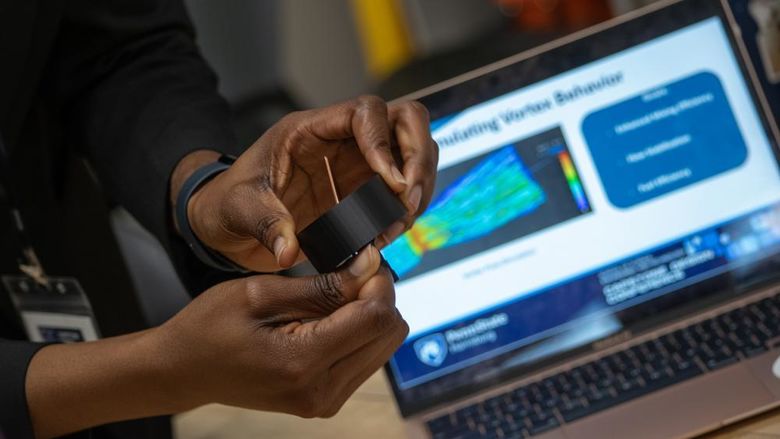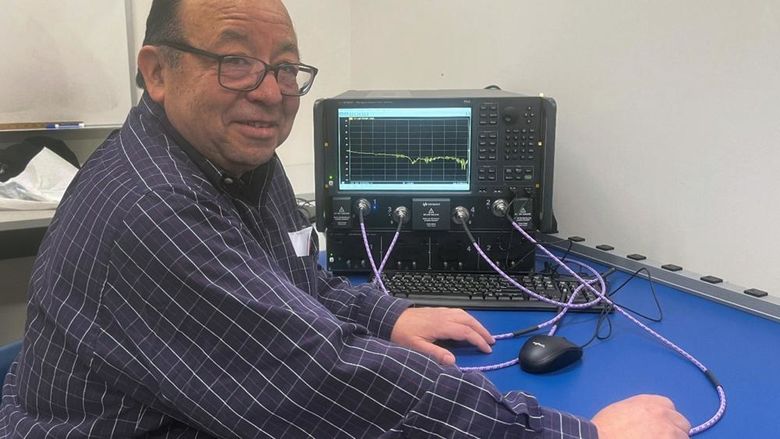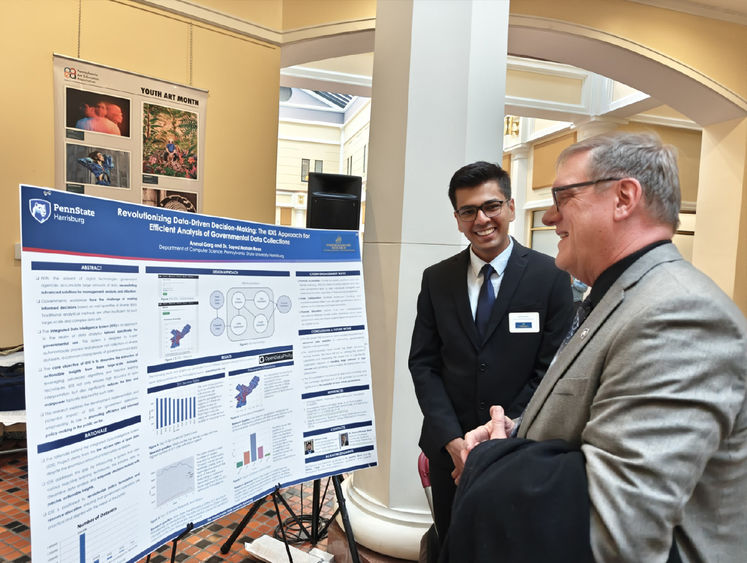
Anmol Garg, a Penn State Harrisburg computer science major, headed to the state Capitol in March to present research on how the automation of open data analysis could help improve the decision-making process for lawmakers.
MIDDLETOWN, Pa. — Anmol Garg, a Penn State Harrisburg computer science major, headed to the state Capitol in March to present research on how the automation of open data analysis could help improve the decision-making process for lawmakers.
The Undergraduate Research at the Capitol poster conference is an educational event that allows undergraduate students from Pennsylvania colleges and universities to showcase their research talents to key decision-makers.
Garg was among 60 students to participate this year. He presented a tool he developed called Integrated Data Intelligence System (IDIS), which is aimed at helping the government automate the analysis of open data — streamlining the vast amounts of data to help policymakers make informed decisions more efficiently.
“The idea of developing something like IDIS stemmed from observing the vast open data repositories available at both federal and state levels, yet with very low access rates,” Garg said. “I firmly believe that by enhancing the accessibility and analysis of data, we can significantly improve this scenario, which will directly result in improved decision-making processes.”
Garg said the experience at the Capitol was “incredibly enriching.” He was able to showcase his research as well as engage in meaningful discussions with lawmakers and professionals from other fields. He met with state Rep. Kerry Benninghoff, R-Centre and Mifflin counties, to talk about how the project could benefit lawmakers and highlight the need for open data initiatives.
“It was also rewarding to see my project being recognized and appreciated by the broader community,” he said.
Sayed Reza, assistant professor of computer science and Garg’s mentor, said the event helped Garg recognize the impact of his research beyond the classroom and build confidence in his ability to contribute to societal change through technology and data analysis.
"Empowering students through data-driven analysis of government data illuminates the pathway to informed decision-making and societal progress, where research meets civic engagement,” he said.
